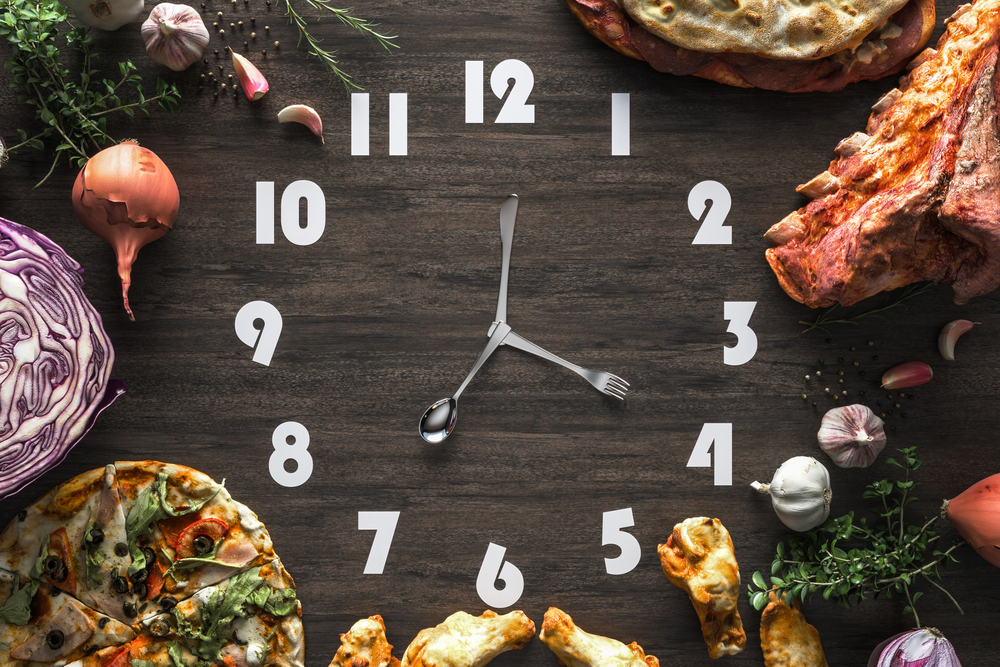As the sun sets and the moon rises, our bodies prepare to rest and rejuvenate for the night ahead. But what if our meal timing could disrupt this natural rhythm, impacting the quality of our sleep? In this article, we delve into the intriguing connection between meal timing and its effects on our nightly slumber. Join us on a journey through the intersection of food and sleep, and discover how the timing of our meals can influence the quality of our rest.

The Connection Between Meal Timing and Sleep Quality
Research has shown that the timing of our meals can have a significant impact on the quality of our sleep. Eating too close to bedtime can disrupt our body’s natural rhythm, making it harder to fall asleep and stay asleep throughout the night. This is because digestion requires energy, and our bodies are more efficient at digesting food when we are active during the day.
Additionally, certain types of foods can also affect our sleep quality. Foods high in sugar and caffeine can stimulate the brain, making it difficult to relax and fall asleep. On the other hand, foods high in tryptophan, such as turkey and bananas, can promote relaxation and improve sleep quality.
It is recommended to have your last meal at least 2-3 hours before bedtime to allow for proper digestion. This can help you avoid discomfort and indigestion that may disrupt your sleep. Incorporating a balanced meal with a mix of protein, carbohydrates, and healthy fats can help stabilize blood sugar levels and promote a good night’s sleep.
Optimal Meal Timing Strategies for Better Sleep
One important factor that can greatly impact your sleep quality is the timing of your meals throughout the day. By strategically planning when you eat, you can optimize your body’s digestion process and promote better sleep at night.
One key strategy is to avoid heavy meals close to bedtime. Eating a large meal right before bed can lead to indigestion and discomfort, making it harder to fall asleep. Instead, focus on having your largest meal earlier in the day and opting for a lighter dinner in the evening.
Another helpful tip is to include sleep-promoting foods in your evening meal. Foods rich in tryptophan, such as turkey, chicken, nuts, and seeds, can help increase the production of serotonin and melatonin, which are crucial for regulating your sleep-wake cycle. Additionally, incorporating complex carbohydrates like whole grains and vegetables can help promote steady blood sugar levels throughout the night.
| Meal Timing Tips: | 1. Eat a light dinner | 2. Include sleep-promoting foods | 3. Avoid heavy meals before bed |
|---|
Impact of Late-Night Eating on Sleep Patterns
Research has shown that the timing of meals can have a significant impact on sleep quality. Late-night eating can disrupt the body’s natural circadian rhythm, leading to difficulties falling asleep and staying asleep throughout the night. When we eat close to bedtime, our bodies are still digesting food when we should be winding down for sleep, which can result in restless nights and groggy mornings.
Some key points to consider when it comes to the :
- Consuming heavy or spicy meals before bedtime can cause indigestion and discomfort, making it harder to fall asleep.
- High-sugar foods can cause fluctuations in blood sugar levels, leading to disrupted sleep cycles.
- Alcohol consumption close to bedtime can interfere with REM sleep, resulting in overall poorer sleep quality.
| Meal Timing | Sleep Quality |
|---|---|
| Early dinner | Improved sleep quality |
| Late-night snack | Disrupted sleep patterns |
It’s essential to prioritize healthy sleep habits by being mindful of when and what we eat. By making conscious choices about meal timing and content, we can better support our body’s natural sleep-wake cycle and ensure restful nights and energized mornings.
Recommendations for Improving Sleep Through Meal Timing
When it comes to improving sleep through meal timing, there are several recommendations that can make a significant difference in your overall quality of rest. One key suggestion is to avoid eating large or heavy meals right before bedtime. Instead, opt for a lighter meal or snack at least two hours before you plan to go to sleep. This can help prevent indigestion and discomfort that may interfere with your ability to fall asleep.
Another recommendation is to focus on including foods in your evening meals that are rich in tryptophan, an amino acid that can promote relaxation and aid in the production of serotonin and melatonin, key hormones for regulating sleep. Incorporating foods like turkey, chicken, nuts, seeds, and dairy products can help naturally boost these sleep-inducing chemicals in your body.
Additionally, paying attention to your caffeine intake and limiting it to earlier in the day can have a positive impact on your sleep. Caffeine is a stimulant that can stay in your system for hours, so it’s best to avoid consuming it in the afternoon and evening. Instead, opt for herbal teas or decaffeinated beverages to help wind down in the hours leading up to bedtime.
In conclusion, understanding the intricate relationship between meal timing and sleep can greatly benefit our overall well-being. By making mindful choices about when and what we eat, we can optimize our sleep quality and ensure better restorative rest. So next time you reach for a late-night snack, consider the impact it may have on your sleep and make a decision that promotes a healthy and restful night. Sweet dreams!
